D Pharma Course in Hindi
डी फार्मा (Diploma in Pharmacy) कोर्स स्वास्थ्य सेवा क्षेत्र में एक आदर्श प्रवेश योग्यता है, जो छात्रों को दवाइयों के बारे में गहन ज्ञान और स्वास्थ्य सेवा में व्यावहारिक कौशल प्रदान करता है। D Pharma Course in Hindi उन छात्रों के लिए उपलब्ध है जो फार्मेसी के मूल सिद्धांतों को अपनी मूल भाषा में सीखना चाहते हैं और फार्मास्युटिकल उद्योग में करियर की तलाश में हैं।
D Pharma क्या है?
डी फार्मा एक 2-वर्षीय डिप्लोमा कोर्स है जिसमें दवाओं के निर्माण, उपयोग, और वितरण के बारे में जानकारी दी जाती है। यह कोर्स छात्रों को फार्मेसी के मूल सिद्धांतों और प्रैक्टिकल ज्ञान से परिचित कराता है।
कोर्स की अवधि और योग्यता
- अवधि: 2 वर्ष
- योग्यता: 12वीं (PCB/PCM) के साथ न्यूनतम 50% अंक
मुख्य विषय (Subjects)
- फ़ार्मास्यूटिकल्स केमिस्ट्री
- फ़ार्मास्युटिक्स
- क्लिनिकल फ़ार्मेसी
- ड्रग स्टोर मैनेजमेंट
- फ़ार्मास्यूटिकल जुरिसप्रूडेंस
करियर विकल्प और नौकरियाँ
डी फार्मा पूरा करने के बाद, छात्र विभिन्न क्षेत्रों में काम कर सकते हैं:
- फार्मासिस्ट
- हॉस्पिटल फार्मासिस्ट
- मेडिकल रिप्रेजेंटेटिव
- ड्रग इंस्पेक्टर
- फार्मा कंसल्टेंट
कोर्स की फीस
डी फार्मा कोर्स की फीस कॉलेज और राज्य के अनुसार अलग-अलग हो सकती है, जो आमतौर पर ₹50,000 से ₹1,50,000 प्रति वर्ष तक होती है।
टॉप कॉलेज
- दिल्ली इंस्टीट्यूट ऑफ़ फार्मास्युटिकल साइंसेज एंड रिसर्च (DIPSAR)
- सेंट एंड्रयूज कॉलेज ऑफ फार्मेसी (SACP)
- जामिया हमदर्द यूनिवर्सिटी
एडमिशन प्रक्रिया
डी फार्मा में एडमिशन के लिए कॉलेज में प्रवेश परीक्षा या 12वीं कक्षा के अंकों के आधार पर मेरिट लिस्ट जारी की जाती है।
डी फार्मा के फायदे
- स्वास्थ्य सेवा क्षेत्र में स्थिर और सम्मानजनक करियर।
- सरकारी और निजी क्षेत्रों में रोजगार के अवसर।
- फार्मेसी में उच्च शिक्षा के विकल्प जैसे बी फार्मा और एम फार्मा।
Some of the most opted courses in India and St. Andrews college or different Engineering college or Management colleges are as follows:-
- Btech
- MTech
- Btech CSE
- BCA
- Btech ETCE
- BBA
- MBA
- MCA
- DPharma – St. Andrews College of Pharmacy
- BPharma – St. Andrews College of Pharmacy
- BArch – St. Andrews College of Architecture
Eligibility Criteria for D Pharma Course
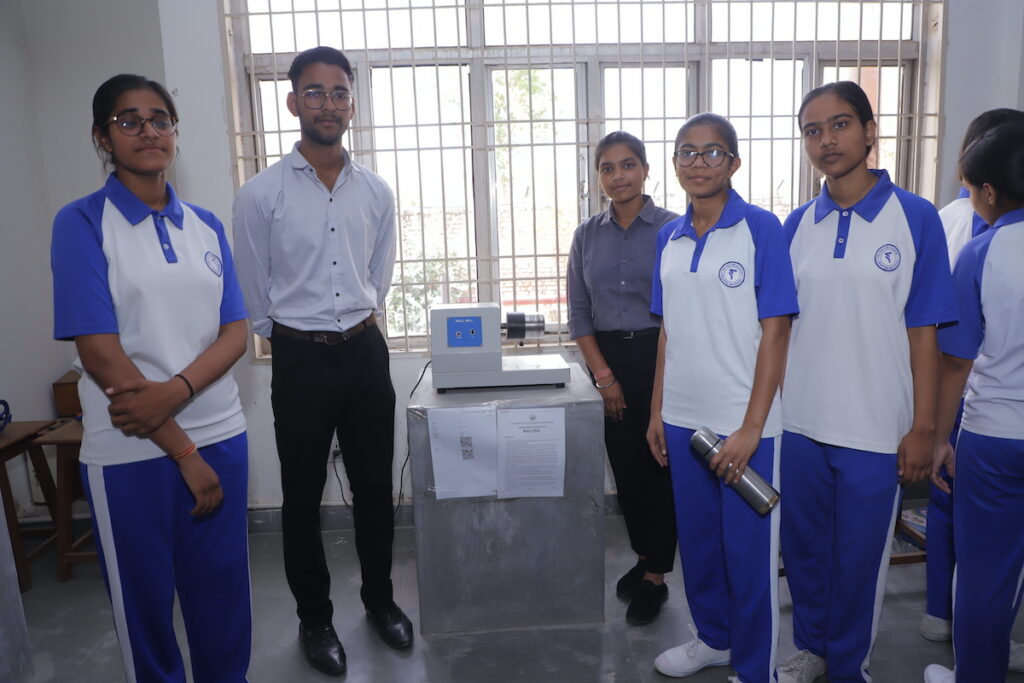
To pursue a (D Pharma) Diploma in Pharmacy, candidates must meet specific eligibility requirements.
Here are the detailed criteria:
Educational Qualification:
- Candidates must have completed their 10+2 (Intermediate) or equivalent examination from a recognized board.
- The qualifying examination should include Physics, Chemistry, and Biology/Mathematics as mandatory subjects.
Minimum Marks:
- A minimum of 50% aggregate marks in the 10+2 examination is generally required. However, this percentage may vary slightly depending on the institution or state regulations.
- Reserved category candidates (SC/ST/OBC) may receive a relaxation of 5-10% in the minimum required marks.
Age Limit:
- The candidate should be at least 17 years old at the time of admission or by the end of the year of admission.
- There is no upper age limit for admission in most institutions.
Entrance Examination (if applicable):
- Some institutions may conduct entrance exams for admission to the D Pharma course, while others may admit students based on merit (10+2 marks).
- Admission processes may vary by state or institution, so checking specific college requirements is advisable.
Physical Fitness:
- Certain institutions may require a medical fitness certificate to ensure that the candidate meets the physical health standards necessary for successfully completing the D Pharma Course in Hindi, verifying their ability to handle the program’s demands.
Admission Process for D Pharma Course

The admission process for the D Pharma Course in Hindi (Diploma in Pharmacy) generally involves a few key steps, which may vary slightly depending on the institution or state guidelines.
Here is a detailed overview of the typical admission process:
Check Eligibility Criteria:
- Ensure you meet the eligibility requirements, such as the minimum marks in 10+2 (Physics, Chemistry, and Biology/Mathematics) and age criteria.
Application Form Submission:
- Obtain the application form from the desired college or apply online through the official college/university website.
- Fill out the application form accurately, providing all necessary details such as personal information, educational background, and course preferences.
Entrance Examination (If Applicable):
- Some colleges conduct entrance exams for D Pharma admissions, while others may admit students based on 10+2 marks.
- Popular state-level entrance exams include GPAT, UPSEE-Pharmacy, and state-specific exams.
Merit-Based Selection:
- In many institutions, admission to the D Pharma Course in Hindi is based on merit, calculated from the marks obtained in the 10+2 examination. A merit list is prepared, and candidates are shortlisted based on their ranks.
Counseling and Seat Allocation:
- Shortlisted candidates are invited for counseling sessions where seat allocation is done based on the rank, availability of seats, and preference of the college.
- Counseling may be conducted online or offline, depending on the institution.
Document Verification:
- Candidates must submit original documents for verification, including mark sheets, certificates, identity proof, and other relevant documents.
- Commonly required documents include:
- 10th and 12th Mark Sheets and Certificates
- Transfer Certificate (TC)
- Migration Certificate (if applicable)
- Caste Certificate (if applicable)
- Passport-sized Photographs
Fee Payment:
- After the seat is allotted, candidates must pay the required admission fee to confirm their seat in the D Pharma Course in Hindi. The fee payment process can usually be completed online or at the college office.
Medical Fitness Certificate (If Required):
- Some institutions may request a medical fitness certificate to confirm the candidate’s suitability for the course.
Final Admission Confirmation:
- Once the above steps are completed, the college issues an admission letter confirming the candidate’s enrollment in the D Pharma course.
Syllabus of D Pharma Course
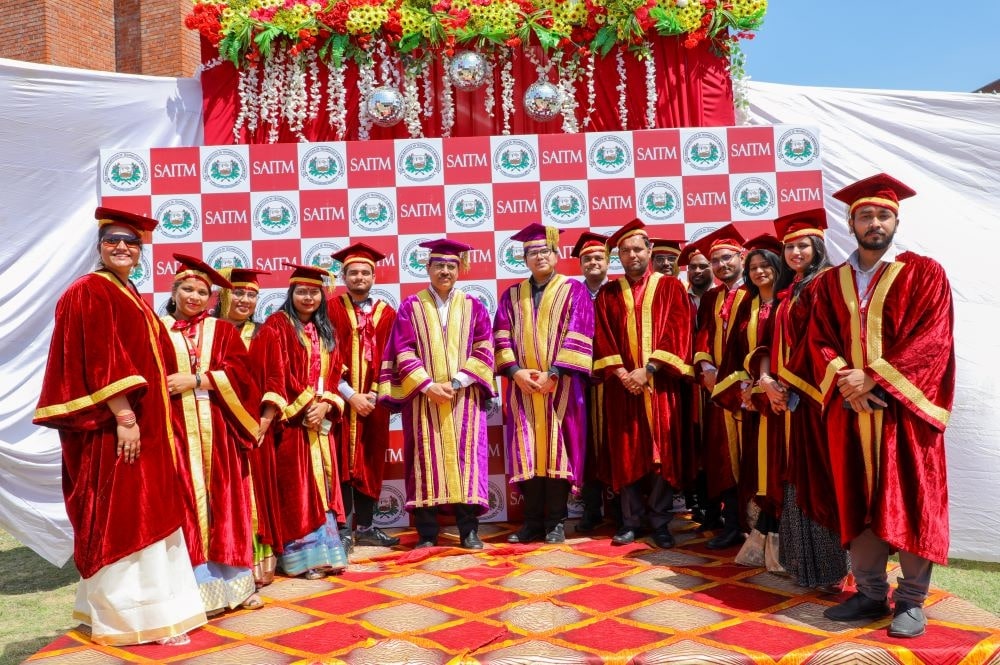
The D Pharma Course in Hindi (Diploma in Pharmacy) is structured into two years, focusing on the foundational aspects of pharmaceutical sciences, including drug formulation, clinical pharmacy, and pharmacy law. After pursuing the D Pharma Course in Hindi and learning these subjects, a person can build a successful career in the pharmaceutical industry.try.
Here’s a detailed overview of the syllabus of diploma in pharmacy for each year:
First Year Syllabus
Pharmaceutics – I
- Introduction to Pharmacy
- Prescription Handling and Errors
- Pharmaceutical Calculations
- Compounding and Dispensing of Medications
Pharmaceutical Chemistry – I
- Fundamentals of Inorganic Chemistry
- Acids, Bases, and Buffers
- Pharmaceutical Analysis
- Volumetric Analysis Techniques
Pharmacognosy
- Study of Natural Drugs
- Plant-Based Drugs and Their Uses
- Extraction and Isolation of Active Ingredients
- Traditional Systems of Medicine (Ayurveda, Unani)
Biochemistry and Clinical Pathology
- Carbohydrates, Proteins, and Lipids
- Enzymes and Their Functions
- Liver and Kidney Function Tests
- Blood and Urine Analysis
Human Anatomy and Physiology
- Introduction to Human Body Systems
- Structure and Functions of Organs
- Cardiovascular, Nervous, and Digestive Systems
- Homeostasis and Body Fluids
Health Education and Community Pharmacy
- Health Promotion and Disease Prevention
- Public Health and Hygiene
- First Aid and Emergency Treatment
- Role of Pharmacist in Community Health
Second Year Syllabus
Pharmaceutics – II
- Pharmaceutical Dosage Forms (Tablets, Capsules, Injections)
- Sterilization Methods and Aseptic Techniques
- Surgical Aids and Medical Devices
- Good Manufacturing Practices (GMP)
Pharmaceutical Chemistry – II
- Organic Chemistry in Pharmaceuticals
- Medicinal Chemistry and Drug Design
- Synthesis of Drugs
- Analysis of Organic Compounds
Pharmacology and Toxicology
- Mechanism of Drug Action
- Drug Interactions and Adverse Effects
- Basic Concepts of Toxicology
- Poisoning and Antidotes
Pharmaceutical Jurisprudence
- Pharmacy Act and Drug Regulations
- Ethical Practices in Pharmacy
- Laws Related to Drug Manufacture and Sale
- Intellectual Property Rights (IPR)
Drug Store and Business Management
- Inventory Control and Management
- Pharmaceutical Marketing and Sales
- Accounting and Financial Management in Pharmacy
- Entrepreneurship in Pharmacy
Hospital and Clinical Pharmacy
- Hospital Organization and Drug Distribution
- Role of Pharmacist in Clinical Settings
- Patient Counseling and Medication Review
- Therapeutic Drug Monitoring
Fees Structure of Diploma in Pharmacy Course
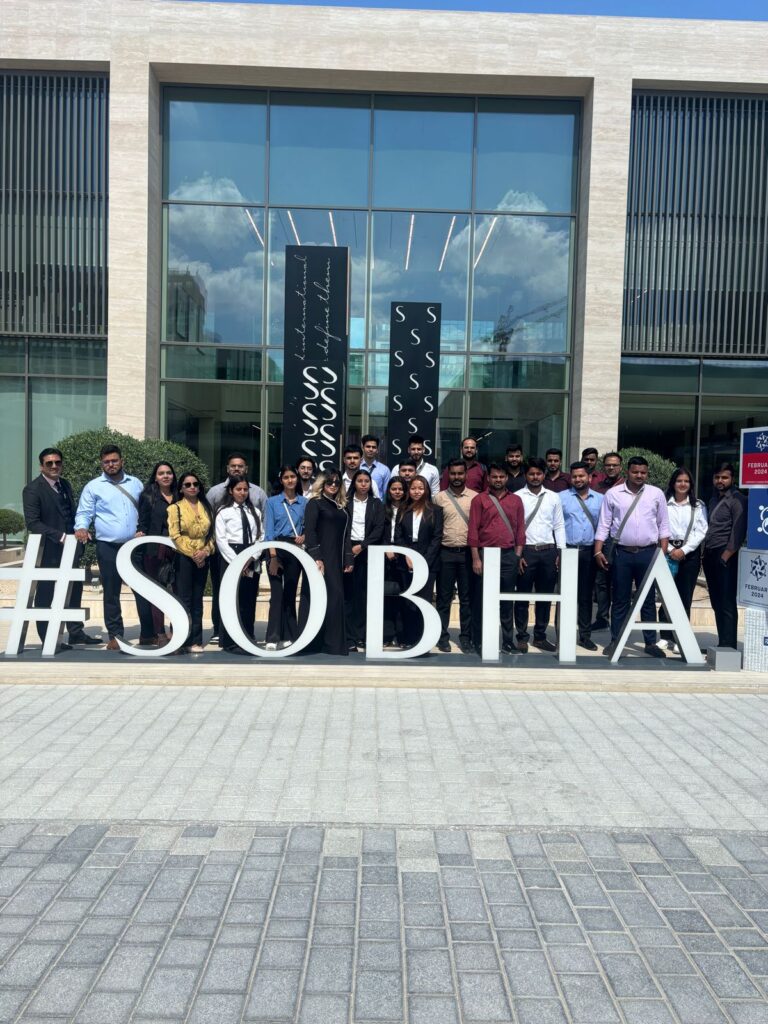
The fee structure for the D Pharma Course in Hindi (Diploma in Pharmacy) varies depending on the type of institution (government or private), location, and facilities provided.
Here is a detailed breakdown of the typical fees associated with Diploma in Pharmacy:
Government Colleges
- Annual Fees: ₹10,000 – ₹50,000
- Total Course Fees (2 Years): ₹20,000 – ₹1,00,000
- Additional Costs: Exam fees, lab fees, and other miscellaneous charges, which are usually minimal.
Government colleges generally offer lower fees due to subsidies and support from the state or central government, making them more affordable.
Private Colleges
- Annual Fees: ₹50,000 – ₹1,50,000
- Total Course Fees (2 Years): ₹1,00,000 – ₹3,00,000
- Additional Costs: Registration fees, lab charges, exam fees, and other institutional charges.
Private colleges typically have higher fees due to advanced facilities, modern infrastructure, and additional support services such as placement assistance and extracurricular activities.
Semi-Government or Aided Colleges
- Annual Fees: ₹30,000 – ₹80,000
- Total Course Fees (2 Years): ₹60,000 – ₹1,60,000
- Additional Costs: Minimal additional charges, making them a balanced option between government and private institutions.
Additional Costs to Consider
- Books and Study Materials: ₹5,000 – ₹10,000 per year
- Uniform and Lab Coats: ₹2,000 – ₹5,000
- Hostel and Accommodation (if applicable): ₹20,000 – ₹60,000 per year, depending on location and facilities.
- Transportation (if applicable): Varies based on the distance and mode of transport.
Top Colleges for Diploma in Pharmacy in India
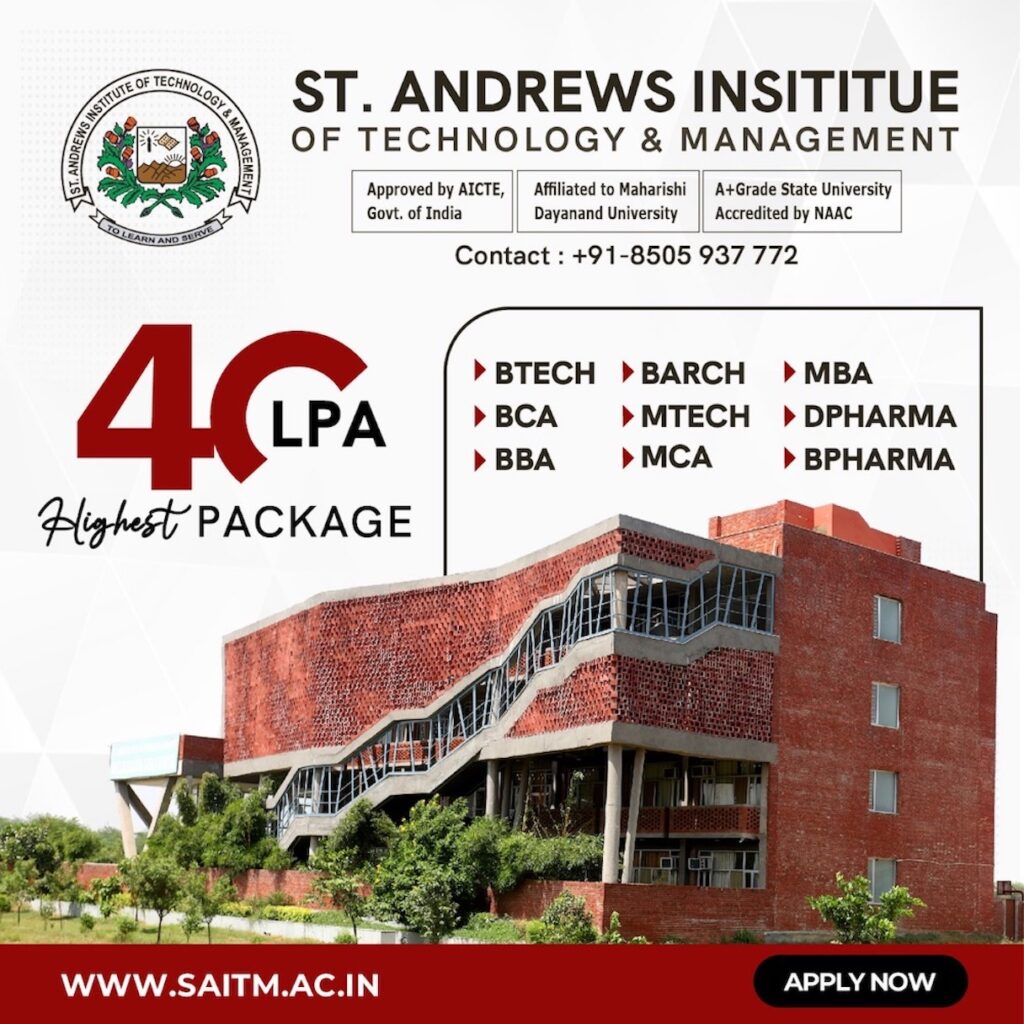
Here is a list of some of the top D Pharma (Diploma in Pharmacy) colleges in India, known for their quality education, excellent infrastructure, and strong placement records. These college helps in entering pharmaceutical industry:
Delhi Institute of Pharmaceutical Sciences and Research (DIPSAR), New Delhi
- Overview: Delhi Institute of Pharmaceutical Sciences and Research University is one of the premier institutions for pharmacy education in India, offering state-of-the-art facilities and a strong research environment.
- Key Highlights: AICTE and PCI approved, experienced faculty, and excellent placement support.
St. Andrews College of Pharmacy (SACP), Gurgaon
- Overview: Known for its modern infrastructure and industry-oriented curriculum, SACP provides quality education in pharmacy and provides good pharmacy career.
- Key Highlights: Practical learning, experienced faculty, and good placement opportunities
Jamia Hamdard University, New Delhi
- Overview: Renowned for its excellent pharmacy programs, Jamia Hamdard offers high-quality education with a focus on research and innovation.
- Key Highlights: Modern labs, strong industry connections, and recognized as a top pharmacy institution in India.
Rama University, Uttar Pradesh
- Overview: Rama University in Uttar Pradesh provides a comprehensive pharmacy curriculum with emphasis on clinical practices and research.
- Key Highlights: Accredited programs, state-of-the-art facilities, and strong placement support.
Bombay College of Pharmacy, Mumbai
- Overview: One of the oldest and most reputed pharmacy colleges in India, known for its excellent academic environment.
- Key Highlights: Strong research focus, well-established infrastructure, and good pharmacy career.
Goa College of Pharmacy, Panaji
- Overview: A reputed government pharmacy college offering high-quality education and training in pharmacy with a focus on clinical pharmacy and research.
- Key Highlights: Affordable fees, experienced faculty, and good industry exposure.
JSS College of Pharmacy, Ooty and Mysuru
- Overview: Known for its comprehensive pharmacy education and excellent research facilities, JSS College offers great opportunities for students.
- Key Highlights: Accredited programs, modern labs, and a strong placement network.
Maharaja Sayajirao University of Baroda, Vadodara
- Overview: A well-known institution offering excellent pharmacy education with a focus on research and innovation.
- Key Highlights: Affordable education, strong research initiatives, and good placement records.
D Pharmacy Career Options and Job Opportunities
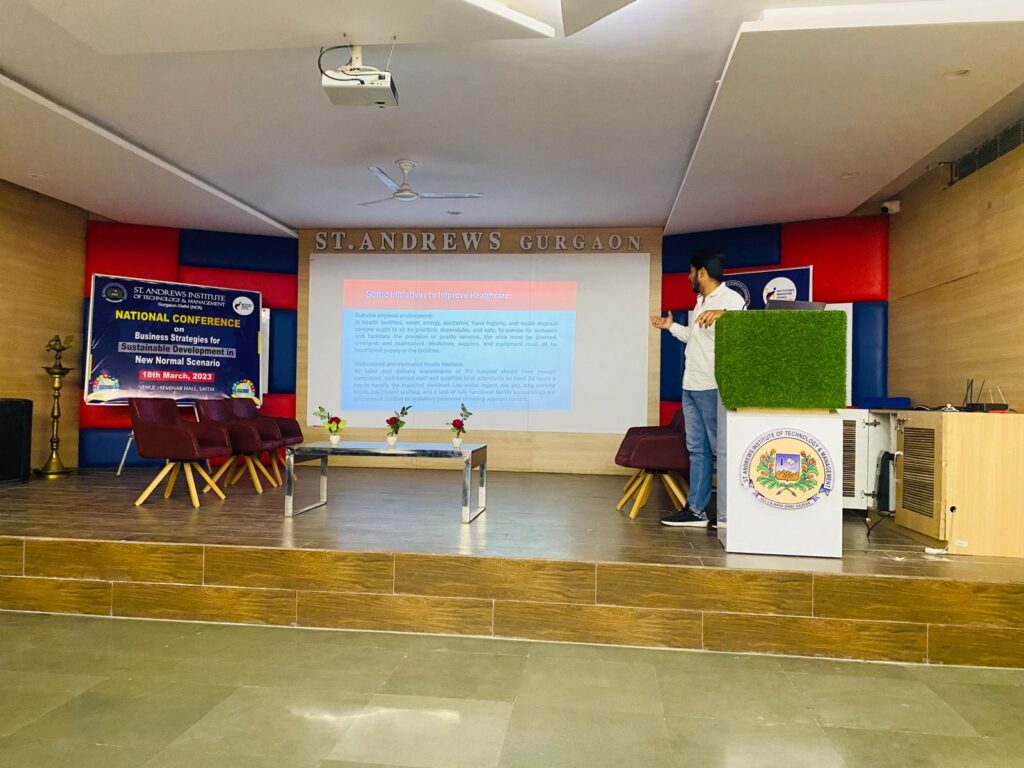
A (D Pharma) Diploma in Pharmacy opens up various career paths in the pharmaceutical industry, healthcare sector, and related fields.
Here are some prominent pharmacy career options and job opportunities available in pharmaceutical industry after diploma in pharmacy:
Pharmacist
- Role: Dispensing medications, advising patients on drug use, managing pharmacy operations.
- Workplaces: Retail pharmacies, hospitals, clinics, and community pharmacies.
Hospital Pharmacist
- Role: Managing medication distribution within hospitals, collaborating with healthcare teams, and ensuring the safe use of drugs.
- Workplaces: Hospitals, healthcare facilities, and medical institutions.
Medical Representative
- Role: Promoting pharmaceutical products to healthcare professionals, conducting product presentations, and gathering market feedback.
- Workplaces: Pharmaceutical companies, marketing agencies, and healthcare organizations.
Drug Inspector
- Role: Ensuring the quality, safety, and efficacy of drugs, conducting inspections of pharmaceutical manufacturing units, and enforcing regulations.
- Workplaces: Government agencies, regulatory bodies, and pharmaceutical inspection departments.
Pharmaceutical Sales Executive
- Role: Selling pharmaceutical products, building relationships with clients, and achieving sales targets.
- Workplaces: Pharmaceutical companies, sales organizations, and distribution companies.
Pharmacy Technician
- Role: Assisting pharmacists in dispensing medications, managing inventory, and handling patient queries.
- Workplaces: Retail pharmacies, hospitals, and clinics.
Clinical Pharmacist
- Role: Providing medication management and therapy optimization, participating in patient care rounds, and offering drug information.
- Workplaces: Hospitals, healthcare settings, and clinics.
Quality Control Analyst
- Role: Testing and analyzing drugs to ensure they meet quality standards, documenting results, and implementing quality assurance procedures.
- Workplaces: Pharmaceutical manufacturing companies, research laboratories, and quality control departments.
Pharmaceutical Research Assistant
- Role: Assisting in drug research and development, conducting experiments, and analyzing research data.
- Workplaces: Research institutions, pharmaceutical companies, and academic labs.
Entrepreneur in Pharmacy
- Role: Starting and managing your own pharmacy business, developing pharmaceutical products, or providing consultancy services.
- Workplaces: Own pharmacy, drug manufacturing unit, or consultancy firm.
Community Pharmacist
- Role: Providing pharmaceutical care to the community, educating patients about medication, and promoting health and wellness.
- Workplaces: Community pharmacies, health clinics, and local health organizations.
Drug Regulatory Affairs Specialist
- Role: Ensuring compliance with drug regulations, preparing regulatory submissions, and interacting with regulatory authorities.
- Workplaces: Pharmaceutical companies, regulatory agencies, and consultancy firms.
Pharmaceutical Marketing Specialist
- Role: Developing marketing strategies for pharmaceutical products, conducting market research, and managing promotional activities.
- Workplaces: Pharmaceutical companies, marketing firms, and advertising agencies.
Formulation Chemist
- Role: Developing and formulating new drug products, conducting stability tests, and optimizing drug formulations.
- Workplaces: Pharmaceutical manufacturing companies, research and development labs, and quality control units.
Average Salary Expected After D Pharma Course
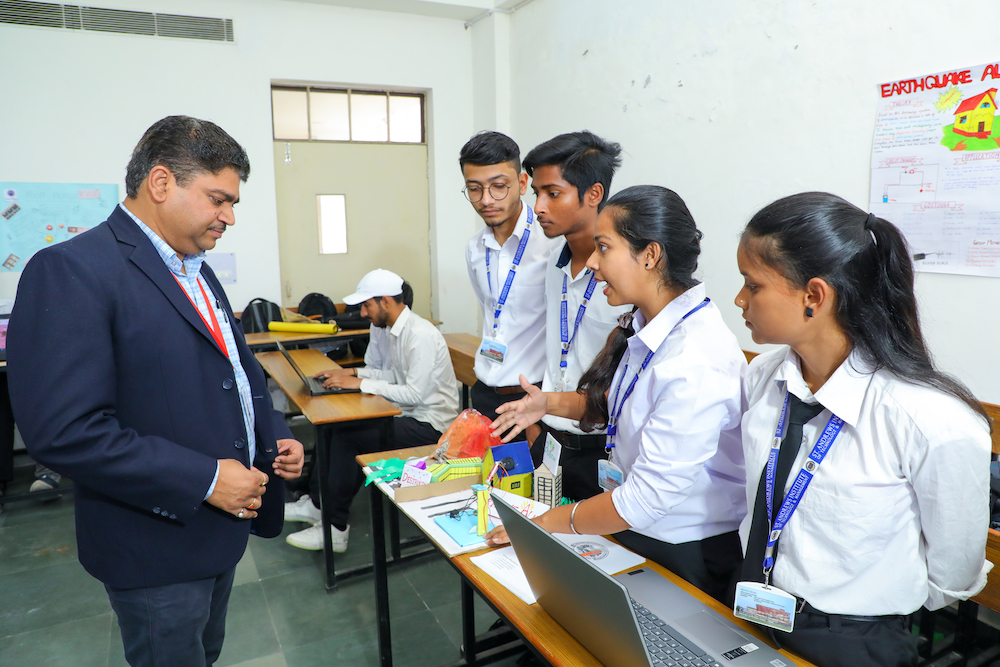
The salary for a (D Pharma) Diploma in Pharmacy graduate can vary widely based on factors such as job role, location, experience, and the type of employer.
Here is a general overview of the average salary ranges for various job roles after completing a D Pharmacy programme:
Pharmacist
Average Salary: ₹2,50,000 – ₹5,00,000 per annum
Role: Dispensing medications, patient counseling, managing pharmacy operations.
Hospital Pharmacist
Average Salary: ₹3,00,000 – ₹6,00,000 per annum
Role: Managing medication distribution in hospitals, collaborating with healthcare teams.
Medical Representative
Average Salary: ₹3,00,000 – ₹6,00,000 per annum (including incentives)
Role: Promoting pharmaceutical products, conducting product presentations.
Drug Inspector
Average Salary: ₹4,00,000 – ₹8,00,000 per annum
Role: Ensuring drug quality, conducting inspections, enforcing regulations.
Pharmaceutical Sales Executive
Average Salary: ₹3,00,000 – ₹5,50,000 per annum (including bonuses)
Role: Selling pharmaceutical products, achieving sales targets.
Pharmacy Technician
Average Salary: ₹2,00,000 – ₹4,00,000 per annum
Role: Assisting pharmacists, managing inventory, handling patient queries.
Clinical Pharmacist
Average Salary: ₹4,00,000 – ₹7,00,000 per annum
Role: Providing medication management, participating in patient care, offering drug information.
Quality Control Analyst
Average Salary: ₹3,00,000 – ₹6,00,000 per annum
Role: Testing and analyzing drugs, ensuring quality standards.
Pharmaceutical Research Assistant
Average Salary: ₹3,00,000 – ₹5,00,000 per annum
Role: Assisting in drug research, conducting experiments, analyzing data.
Community Pharmacist
Average Salary: ₹2,50,000 – ₹5,00,000 per annum
Role: Providing pharmaceutical care to the community, patient education.
Drug Regulatory Affairs Specialist
Average Salary: ₹4,00,000 – ₹8,00,000 per annum
Role: Ensuring compliance with regulations, preparing regulatory submissions.
Pharmaceutical Marketing Specialist
Average Salary: ₹3,50,000 – ₹6,00,000 per annum
Role: Developing marketing strategies, managing promotional activities.
Formulation Chemist
Average Salary: ₹4,00,000 – ₹7,00,000 per annum
Role: Developing and formulating new drug products, conducting stability tests.
Benefits of Pursuing a D Pharmacy Programme

Completing a Diploma in Pharmacy (D Pharmacy Programme) offers numerous advantages, opening up a range of career opportunities and providing a solid foundation in pharmaceutical sciences.
Here are some key benefits of pursuing a D Pharmacy programme:
Foundation for Pharmacy Career:
Knowledge Base: Provides a strong foundation in pharmaceutical science, including drug formulation, pharmacology, and clinical practices.
Skill Development: Equips students with essential skills in drug dispensing, patient counseling, and pharmacy management.
Diverse Career Opportunities:
Job Roles: Opens doors to various job roles such as pharmacist, hospital pharmacist, medical representative, quality control analyst, and more.
Flexibility: Offers opportunities in various settings including retail pharmacies, hospitals, pharmaceutical companies, and research institutions.
Practical Experience:
Hands-On Training: Includes practical training in laboratory settings, allowing students to gain hands-on experience with drug preparation and dispensing.
Internships: Many pharmacy programme offers internships or practical training modules, enhancing real-world experience and job readiness.
Regulatory Knowledge:
Compliance: Provides knowledge of pharmaceutical regulations, drug safety, and quality control, which is crucial for roles in regulatory affairs and compliance.
Community Impact:
Healthcare Contribution: Enables graduates to contribute to public health by providing essential medication, patient education, and health promotion.
Patient Interaction: Offers opportunities to interact with patients, provide medication counseling, and play a crucial role in healthcare delivery.
Career Stability and Demand:
Growing Field: The pharmaceutical industry and healthcare sector are continuously growing, ensuring a steady demand for qualified pharmacy professionals.
Job Security: Pharmacy roles often offer good job security and stability, with a consistent need for skilled professionals.
Educational Pathway:
Further Studies: Serves as a stepping stone for advanced studies such as a Bachelor of Pharmacy (B Pharma), Master of Pharmacy (M Pharma), or other specialized fields in pharmacy.
Specialization: Offers opportunities to specialize in various areas such as clinical pharmacy, pharmaceutical research, or pharmacovigilance.
Entrepreneurial Opportunities:
Own Business: Provides the skills and knowledge needed to start and manage a pharmacy business or venture into pharmaceutical entrepreneurship.
Innovation: Encourages innovation in drug formulation, health products, and pharmacy services.
Enhanced Professional Skills:
Communication: Develops strong communication skills necessary for effective patient interaction and professional collaboration.
Management: Includes training in pharmacy management, including inventory control and business operations.
Global Recognition:
International Opportunities: The skills and knowledge gained are recognized globally, providing opportunities to work in various countries and international settings.
FAQs
D Pharma क्या है?
Diploma in Pharmacy एक दो वर्षीय डिप्लोमा कोर्स है जो फार्मास्युटिकल साइंसेज की बुनियादी जानकारी प्रदान करता है। इसमें दवाओं के निर्माण, वितरण और उपयोग की प्रक्रिया को समझाया जाता है।
D Pharma करने के लिए पात्रता क्या है?
डी. फार्मा कोर्स के लिए उम्मीदवार को 10+2 (फिजिक्स, केमिस्ट्री और बायोलॉजी के साथ) पास होना चाहिए। कुछ संस्थानों में न्यूनतम प्रतिशत की आवश्यकता होती है।
D Pharma के लिए प्रवेश प्रक्रिया क्या है?
डी. फार्मा के लिए प्रवेश आमतौर पर संस्थानों द्वारा आयोजित प्रवेश परीक्षा या मेरिट लिस्ट के आधार पर होता है। आवेदन प्रक्रिया संस्थान के निर्देशों के अनुसार होती है।
D Pharma कोर्स की अवधि कितनी होती है?
डी. फार्मा कोर्स की अवधि सामान्यतः दो साल होती है, जिसमें प्रत्येक वर्ष के अंत में परीक्षा होती है।
D Pharma के बाद क्या कर सकते हैं?
डी. फार्मा के बाद आप विभिन्न करियर विकल्पों में जा सकते हैं जैसे कि फार्मासिस्ट, मेडिकल रिप्रेजेंटेटिव, क्वालिटी कंट्रोल एनालिस्ट, ड्रग इंस्पेक्टर, और हॉस्पिटल फार्मासिस्ट।
D Pharma के लिए फीस कितनी होती है?
संस्थान और स्थान के आधार पर D Pharma की फीस में भिन्नता होती है। सरकारी कॉलेजों में यह फीस ₹10,000 – ₹50,000 प्रति वर्ष के बीच हो सकती है, जबकि प्राइवेट कॉलेजों में डी. फार्मा की फीस ₹50,000 – ₹1,50,000 प्रति वर्ष तक हो सकती है। सकती है।
D Pharma कोर्स के लिए सिलेबस क्या है?
आमतौर पर, D Pharma का सिलेबस फार्मास्युटिक्स, फार्मास्युटिकल केमिस्ट्री, फार्माकोग्नोसी, बायोकेमिस्ट्री, मानव शारीरिक रचना और स्वास्थ्य शिक्षा जैसे विषयों पर आधारित होता है। इस कोर्स में छात्रों को दवाओं के निर्माण, उनकी रासायनिक संरचना, औषधीय पौधों की पहचान, शरीर की संरचना और स्वास्थ्य से संबंधित विभिन्न पहलुओं की जानकारी दी जाती है। D Pharma के तहत इन विषयों का अध्ययन करके छात्र फार्मेसी क्षेत्र में आवश्यक ज्ञान और कौशल प्राप्त करते हैं।
D Pharma करने के बाद क्या सरकारी नौकरी मिल सकती है?
हाँ, D Pharma के बाद सरकारी नौकरी की संभावना होती है। आप ड्रग इंस्पेक्टर, फार्मासिस्ट और अन्य सरकारी पदों के लिए आवेदन कर सकते हैं।
D Pharma के लिए कौन-कौन से प्रमुख कॉलेज हैं?
भारत में कुछ प्रमुख D Pharma कॉलेजों में दिल्ली इंस्टीट्यूट ऑफ फार्मास्यूटिकल साइंसेज एंड रिसर्च (DIPSAR), जामिया हमदर्द यूनिवर्सिटी, और सेंट एंड्रयूज कॉलेज ऑफ फार्मेसी (SACP) शामिल हैं।
D Pharma के लिए स्कॉलरशिप की सुविधा है?
हाँ, कई कॉलेजों और संस्थानों में स्कॉलरशिप की सुविधा होती है, जो मेरिट या वित्तीय आवश्यकता के आधार पर प्रदान की जाती है। आपको कॉलेज की वेबसाइट या कार्यालय से अधिक जानकारी प्राप्त करनी चाहिए।




